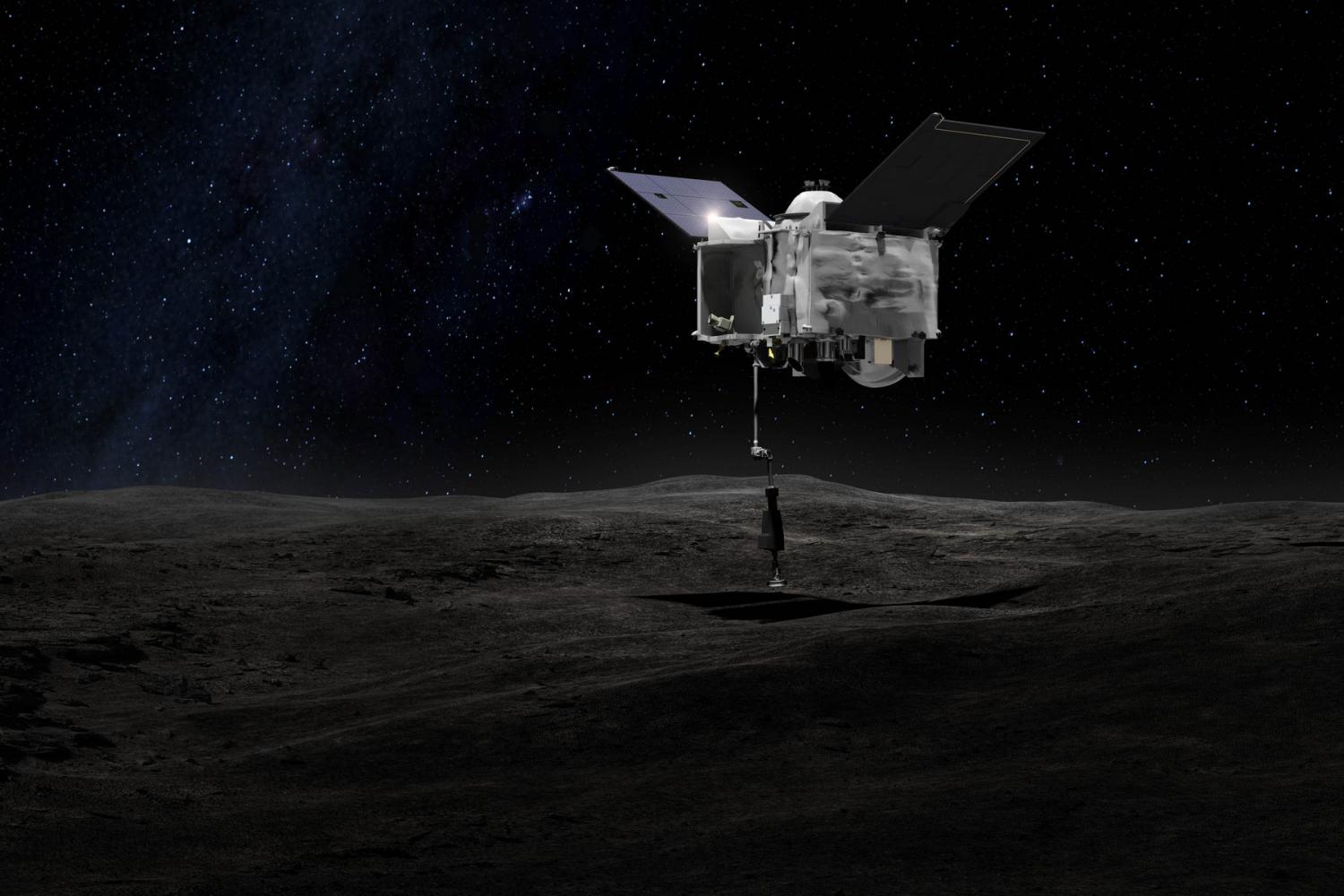To study the formation of our planet, as well as the overall solar system, and to study the possible source of all the organic matter on Earth, NASA designed a mission called Origins, Spectral Interpretation,

Resource Identification, Security, Regolith Explorer) (OSIRIS-REx). The goal of this mission is to collect material from asteroid 101955 Bennu, which is a carbonaceous near-Earth asteroid. This mission was launched in September 2016, and it met Bennu in December 2018. It took the mission almost two years to study this asteroid from a distance in order to finalize a suitable place to land and collect material.

On October 20, 2020, it finally landed on Bennu to collect material to study its chemical composition. What the probe or the astronomers didn’t know was that this asteroid was not a solid rocky body, but a rubble pile.
When the OSIRIS-REx probe landed on its surface, it could have been engulfed by this half-kilometer asteroid, but, thanks to the programmed lift-up which made this probe lift itself up within a few seconds of touchdown with this giant it was saved.
The way this probe was supposed to work was to touch the surface of the asteroid and stay there for 5 seconds while blowing off some nitrogen gas which would lift the material in space to be collected in the collection hopper of the probe.
However, in this case, the probe kept sinking into the asteroid (about a half-a meter down) before turning back away from the surface and back into its orbit. The almost choked probe was covered in asteroid material all around, but thankfully, even with this unexpected turn of events, the probe was successful in collecting enough material to bring to the Earth.
The blown gas blasted out about 13000 pounds of dust and rock. Astronomers expected only 60 grams of material, but the collection hopper received more than 400 grams. This material will be delivered to Earth in 2023. The rendezvous event and a more detailed explanation of the ultimate scientific goal of this mission was published in the Journal of Science in July 2022.





